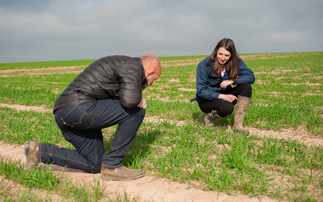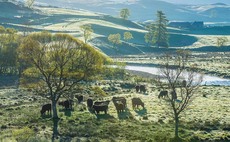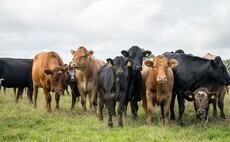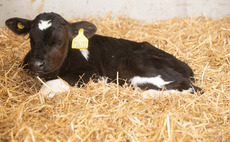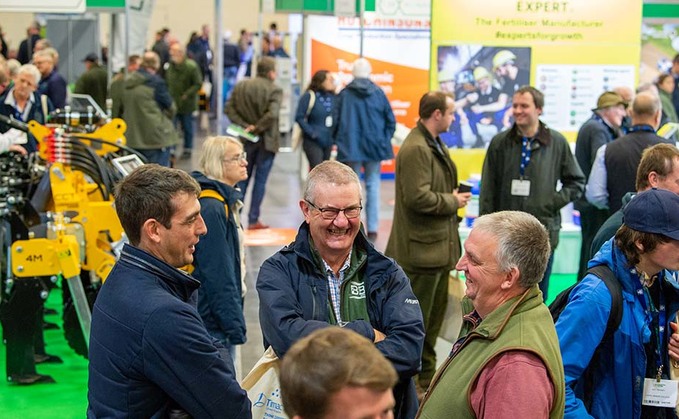
Visitors to last week’s CropTec Show were met with the latest developments in agritech, plus top business and agronomy advice, as the event celebrated its 10th anniversary. �������� Guardian reports.
Managing land in a different way
�������� need to think differently about their land and what they do as the importance of natural capital grows.
And while there is a lot of talk about natural capital, ‘monetising it is quite a challenge’, Andersons’ George Cook said, speaking at the CropTec Maximising natural capital revenue opportunities seminar, sponsored by Agreena.
Since World War II, food production has taken priority, but Mr Cook warned that ‘the tide is now shifting and we will need to get used to managing land in a different way’.
He said: “We have got used to bullying land and have to go back to school to look at other solutions.”
Mr Cook said that natural capital was a wide-ranging description covering any element of nature which produced value or benefits to people, directly or indirectly.
In farming, it could involve things such as influencing water quality or carbon capture.
On-farm, making the most of natural capital should start with considering retaining more of your inputs on-farm and not losing them, he said.
Biodiversity also needed to be a focus. This was easiest tackled by thinking about birds and bees, he said, thinking about what they needed to live well on-farm all year round.
Cover cropping would help improve biodiversity, but also gave other benefits, such as making maximum use of available sunlight and helping soils cope with more intense rain.
He added that a 5mm raindrop had 500 times the kinetic energy of a 1mm raindrop, making short, heavy rainstorms particularly damaging to bare soils which were more easily eroded.
Carbon risks
There is a reason the legal profession is excited about carbon markets, George Cook warned CropTec visitors.
He cited the key risks as:
- Non-permanence: The risk that any carbon sequestered is emitted, either by nature or bad practice.
- The science catches up with you and refunds for non-delivery.
- The price of carbon remains below the opportunity cost.
- Underselling your assets.
- Making sure you retain enough for your own carbon offset which will be required by your customers.
- Future market requirements.
Mr Cook said: “I would advise taking a cautious approach, so your business has what it needs first. Be very clear about what the potential purchaser is looking for and get it all legally wrapped up.”
Water investment needed to tackle food security
With the UK experiencing one of its driest summers on record, the Holkham Estate saw all five of its reservoirs run dry for the first year ever.
Speaking during the Anglian Water hub panel discussion, James Beamish, farm manager at the Holkham Estate in Norfolk, said: “We have invested in water storage over the last 25 years. The farming investment fund is great in investing in local water infrastructure, but it is probably national infrastructure we need to be looking at for food security.”
Alice Green, land use and policy adviser at CLA, encouraged growers to double check when their water abstraction licences were up for renewal.
She said: “It is important to know because of changes to licensing occurring in the next few years. Make sure you can demonstrate your [water volume] need and make any changes you need to your licence.
“Abstraction licences will probably move into the environmental permitting regime. We have not had clarity on exactly how that is going to work, but we know to expect some quite big changes.”
Lincolnshire farmer Mark Stubbs added that greater funding for flood alleviation was needed.
He said: “We need more grant money for clearing ditches. If I clean my ditch it is fine, but if my neighbour does not have the funds to clear their ditch, it creates a dam for me and the water will keep backing up. This will affect me and also my neighbour the other side probably even more so.”
Hold on to cash, growers advised
Arable crop costs of production are set to rise a further 32 per cent in 2023, according to estimates from AHDB FarmBench data.
This comes following a 15 per cent rise in 2022 and an average 6 per cent rise in the five years previous.
Presenting the figures at the CropTec ‘Coping with change’ seminar, AHDB’s Harry Henderson said: “We are seeing a softening in wheat prices and, although we could see an increase of 80 per cent in [winter wheat] net margin for 2022, this is expected to fall by two-thirds in 2023.”
With some farmers looking to offset tax from the 2022 season by making purchasing decisions, Mr Henderson advised ‘hang on to your money if you can’.
He also added that there was a risk of businesses waiting for Environmental Land Management (ELM) scheme money before reacting.
He said: “Think of ELM as a bonus, rather than a business-enabler.”
Glyphosate loss ‘would impact water quality’
Glyphosate has become a vital tool for many growers using the product to reduce tillage. But with the herbicide up for renewal in Europe this December and the UK in 2025, a ban on its use would have a detrimental impact on both soil health and water quality.
This was according to Lincolnshire farmer Mark Stubbs, who, speaking in the Anglian Water Hub, said: “If we lose glyphosate, we will have to look at different options, which will just ruin soil structure and everything we are working towards. Water problems will increase and farmers will go back to old techniques.”
James Beamish, of the Holkham Estate, said: “Glyphosate is a vital ingredient in regen. If I knew glyphosate was going, I would buy shares in the plough.”






